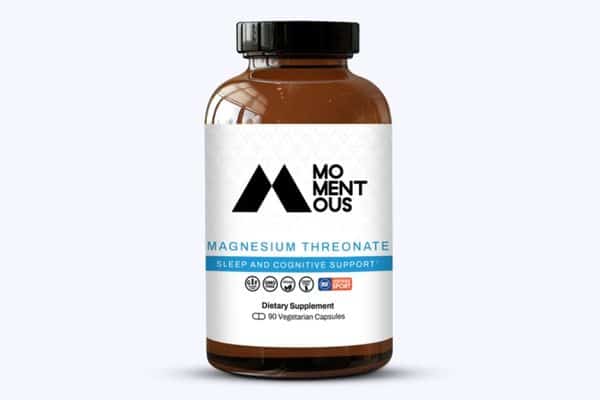Magnesium Threonate is a specific formulation of magnesium that increases the concentration of magnesium in the brain. Read more to learn how Magnesium Threonate can improve sleep, memory, and reverse cognitive impairment.
Dr. Andrew Huberman Recommends Magnesium Threonate
I first learned about Magnesium Threonate on the Huberman Lab podcast. Dr. Huberman is well known for discussing brain health and supplements.
Dr. Huberman, a Stanford professor of neuroscience has said that he finds that Magnesium Threonate can help insomnia, he takes 3-400mg before bedtime.

Then I heard Dr. Huberman on the the Tim Ferris podcast and Tim excitedly brought up the topic and wanted to talk about how Magnesium Threonate gets into the brain.
I was intrigued, I’d never heard of this type of magnesium and decided to read up a little more on why it’s so great.
Magnesium Threonate is one component of Dr. Huberman’s famous ‘sleep cocktail‘, which Momentous offers as a convenient sleep pack.
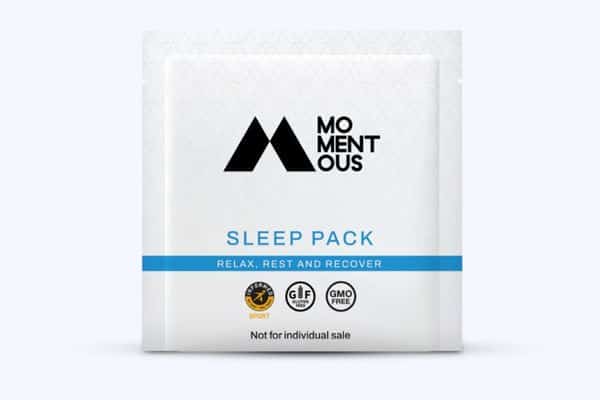
What is Magnesium And Does It Benefit Brain Health?
Magnesium is an essential biomineral in our bodies. It is actually the 11th most abundant element by mass in the human body!
And magnesium is important for the proper function of over 300 enzymes.
So, clearly it is pretty important for general body health, but also for brain health.

The level of magnesium in your brain is a critical factor that controls synapse density and plasticity.
What’s Up With All These Different Types of Magnesium?
Magnesium is an element that can only occur naturally in combination with other elements.
So all these types of magnesium are different in terms of what the magnesium is bonded to, and they each have different benefits.
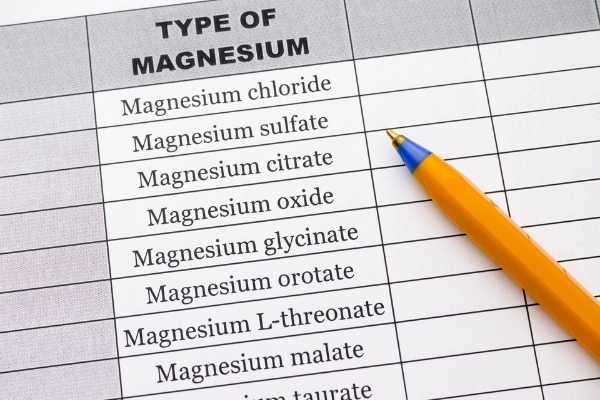
What is Magnesium Threonate?
Magnesium Threonate is a specific formulation of magnesium developed at MIT that increases the concentration of magnesium in the brain. Magnesium Threonate can improve memory, and reverse cognitive impairment.
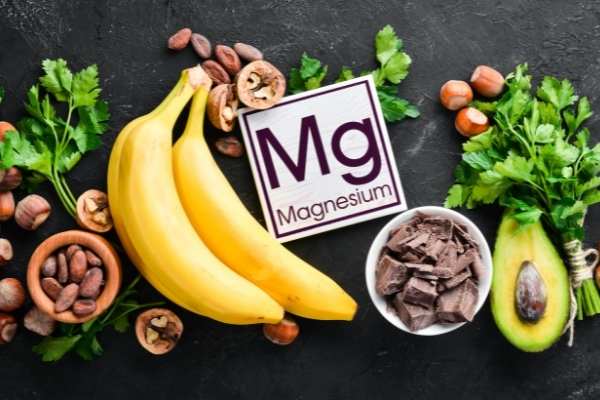
Researchers found that when threonate was coupled with magnesium, it helped memory and other cognitive functions.
This specific formulation of magnesium is also called Magnesium L-Threonate, MgT or L-TAMS. (Which is useful to know if you are looking up research papers.)
Threonate is vitamin C metabolite naturally present in our bodies.
Threonate has been linked to bone health, it is known to support bone formation and prevent bone degradation.
Threonate is found in really high concentrations in the brain, five times higher than in the blood! So threonate is really important in the central nervous system (CNS).
Huberman Lab: Magnesium Threonate is the Best Magnesium for Brain Health
Studies show magnesium threonate improves memory, but other forms of magnesium (magnesium chloride, magnesium citrate, magnesium glycinate, and magnesium gluconate) do not.
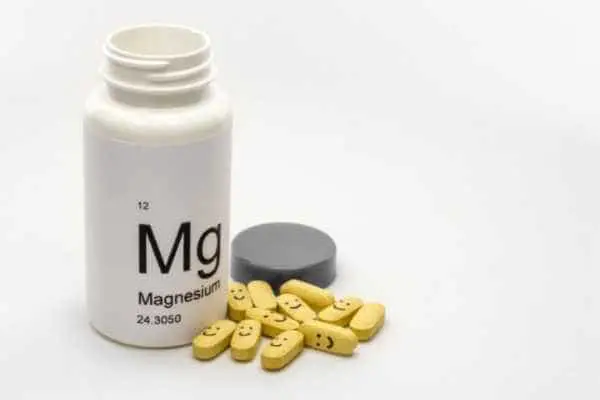
And… treatment with either threonate or magnesium alone did not improve memory ability.
Why is that? It is because there is something important in this combination of magnesium and threonate, they have to work together!
Somehow, the threonate helps the magnesium get into the brain. The absorption of magnesium into the brain is really tightly controlled.
It is likely that threonate affects the absorption of magnesium from the gut into the blood stream, and then from the blood into the brain.
So magnesium threonate is the best form of magnesium for brain health.
Interested in buying Magnesium Threonate?
- Link to purchase Magnesium Threonate at Momentous (15% off Code – VASTMIND)
- Link to purchase Magnesium Threonate at Double Wood
- Link to see Magnesium Threonate options on Amazon
Consult your Physician or Registered Dietitian before starting nutrition supplements.
Brain Benefits of Magnesium Threonate
Since Magnesium Threonate helps you get magnesium in your brain, magnesium threonate has particular benefits on brain health and function.
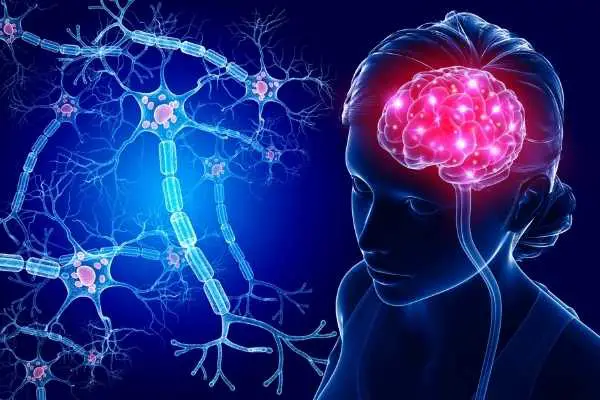
Magnesium threonate increases synapse density and enhances synaptic plasticity in the prefrontal cortex and hippocampus.
This results in:
- Improved executive function
- Enhanced brain plasticity in Alzheimer’s disease
- Reversed cognitive impairment
- Improved memory
- Reduction of anxiety
Magnesium Threonate Benefits: Cognitive Impairment
Let’s look at a couple of studies to get a better picture.
One exciting study in humans (double blind and randomized) showed that Magnesium Threonate nearly restored impaired executive function in people aged 50-70 with cognitive impairment.
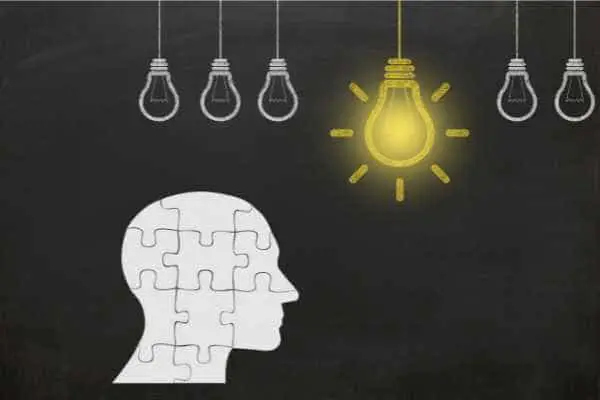
Another study showed oral Magnesium Threonate was able to prevent and restore the short term memory deficits caused by nerve injury.
These are actually pretty impressive results.
The researchers are still figuring out how this is happening, they think Magnesium Threonate works by reversing dysfunction of the NMDA receptor, and normalizing TNF-alpha expression.
Magnesium Threonate Side Effects
A common side effect of magnesium supplements is digestive upset, sometimes to the point of cramping and diarrhea. Some people actually take some forms of magnesium as a laxative (milk of magnesia).
However, magnesium threonate does not have this laxative effect as it is absorbed into the blood and brain more effectively than other magnesium formulations.
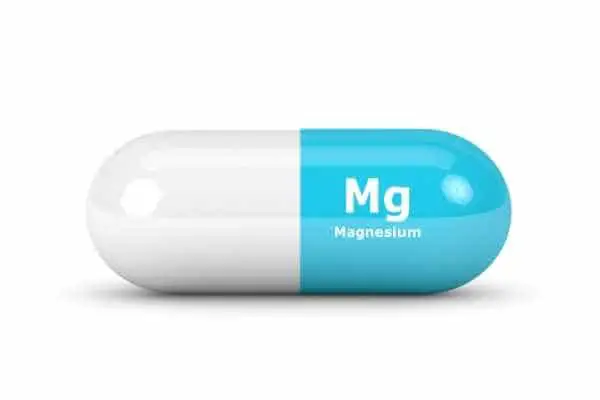
There have been reports of mild headaches. Drowsiness has also been reported, which makes sense since it is one component of the famous ‘Dr. Huberman Sleep Cocktail’.
So it would make sense to take it at night and to start with one tablet and increase to the recommended amount.
Magnesium can interact with some medications and people with kidney disease may not be able to clear magnesium properly, so do discuss with your physician before starting magnesium supplementation.
Magnesium Threonate – No Withdrawal
The way magnesium threonate works to improve brain function means that stopping it does not lead to a sudden withdrawal effect.
It takes at least a month for magnesium threonate taken orally to raise brain magnesium levels to the level need to effect memory.
This means that the benefits of taking magnesium threonate is not instantaneous, and that the loss of the benefits would not be quick either.
If you stop taking magnesium threonate, or miss taking some for a few days, you are not going to have some type of acute withdrawal effect.
Magnesium Threonate for Sleep and…
Dr. Huberman has discussed many times that he uses Magnesium Threonate to help with insomnia – as part of his famous ‘sleep cocktail’, which you can read about in detail here.

Other uses of magnesium threonate? Flammer syndrome is a constellation of symptoms including cold hands, low blood pressure, being prone to headaches. Dr. Flammer recommends taking high doses of magnesium to treat flammer syndrome.
Since other forms of magnesium can cause gastrointestinal distress (even diarrhea!) at high doses, Magnesium Threonate would be a good choice.

Magnesium Threonate might help treat Adult ADHD and the insomnia and dysregulated emotions linked to Adult ADHD – A study showed that children with ADHD have lower levels of magnesium.
What is the Best Dose of Magnesium Threonate?
In the studies the dosage of Magnesium Threonate was between 1.5 to 2mg per day, or approximately 25 mg/kg/day.
People who weighed between 50 and 70 kg took 1.5 g/day, and those between 70 and 100 kg took 2 g/day. Which is pretty much the serving size on this bottle.
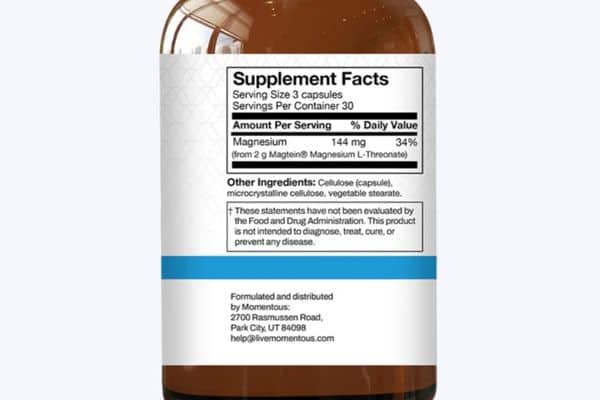
Which brings me to ‘serving size’ which is really annoying. I have found that a lot of bottles (like this one I bought) of Magnesium Threonate list a ‘serving’ as 3 capsules. And they list the amount that is in not 1 but 3 capsules in their descriptions.
Which I think is a little tricky because if you don’t notice you think you are getting 3 times the amount you really are.
The other confusing about the dose on the bottle is that one number refers to the total amount of the molecule (the magnesium and the threonate together) and another number is just the magnesium portion of the molecule.
So when you are following dosing recommendations, try to figure out which number the dose means. Dr Huberman has recommended 200-400mg before bed, so I am assuming he means the mg of Magnesium itself, not the total molecule. Which would be two of the pills in this bottle.
Dr. Flammer recommends Magnesium suplementation for treatment of Flammer syndrome (The reason? Magnesium is a physiological calcium channel blocker (CCB), which reduces the vasoconstrictive effect of endothelin-1 and improves blood flow regulation.)
But to make it even more confusing he suggests a dose in mmol!
‘A relatively high dose of at least 10–20 mmol/day magnesium is needed.’
Flammer-Syndrome: Therapy
I calculated this out and it would be 243-486mg of magnesium (just the magnesium), so pretty similar dosing to Dr. Huberman’s suggestion after all.
So basically the daily dose is 2-3 capsules from the container I bought, there are just many different ways of saying this scientifically.
Interested in buying Magnesium Threonate?
- Link to purchase Magnesium Threonate at Momentous (15% off Code – VASTMIND)
- Link to purchase Magnesium Threonate at Double Wood
- Link to see Magnesium Threonate options on Amazon
Consult your Physician or Registered Dietitian before starting nutrition supplements.
- Physiological Sighs: Benefits of the Huberman Lab Tested Breathing Technique
- The Huberman Sleep Cocktail: The Simple Mix That Beats Insomnia
- Dr. Andrew Huberman’s Recommended Testosterone Supplements
- Dr Andrew Huberman Book Recommendations: Top Picks
- Huberman Lab Supplement: Is Athletic Greens Worth It?
Interested in some other techniques for brain health?
Read about Non-Sleep Deep Rest protocols like Yoga Nidra and Self-Hypnosis, Dr. Huberman’s Sleep Cocktail, and music that helps you focus!
References
- Efficacy and Safety of MMFS-01, a Synapse Density Enhancer, for Treating Cognitive Impairment in Older Adults: A Randomized, Double-Blind, Placebo-Controlled Trial
- Neurobehavioral and biochemical effects of magnesium chloride (MgCl2), magnesium sulphate (MgSO4) and magnesium-L-threonate (MgT) supplementation in rats: A dose dependent comparative study
- Magnesium L-threonate Prevents and Restores Memory Deficits Associated with Neuropathic Pain by Inhibition of TNF-a
- Regulation of structural and functional synapse density by L-threonate through modulation of intraneuronal magnesium concentration
- Elevation of brain magnesium prevents synaptic loss and reverses cognitive deficits in Alzheimer’s disease mouse model
- Huberman Lab: MASTER YOUR SLEEP & BE MORE ALERT WHEN AWAKE
- The Tim Ferriss Show Transcripts: Dr. Andrew Huberman — A Neurobiologist on Optimizing Sleep, Performance, and Testosterone (#521)
- Significantly lower serum and hair magnesium levels in children with attention deficit hyperactivity disorder than controls: A systematic review and meta-analysis
- Chronic dietary magnesium-L-threonate speeds extinction and reduces spontaneous recovery of a conditioned taste aversion

